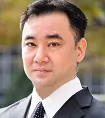In the dynamic world of fund management, staying compliant is not just a matter of adhering to best practices — it is crucial for the very survival of the fund. Singapore, Hong Kong, and Japan, three of Asia's financial powerhouses, have intricate and diverse fund manager licensing requirements that professionals operating in these jurisdictions must adhere to. As these markets continue to evolve and regulators become ever more vigilant, non-compliance risks not only severe penalties but also irreversible reputational damage.
Drawing insights from leading funds lawyers across these countries, this article delves into the intricate tapestry of regulations, underscoring the imperative for fund managers to stay abreast of these laws or risk the very sanctity of their operations. We present below some recent developments in fund management across these jurisdictions and provide a summary of the key licensing requirements here.
Singapore
According to the Singapore Asset Management Survey (the "Survey") published by the Monetary Authority of Singapore ("MAS") for the calendar year ending 31 December 2021, Singapore's asset management industry registered a 16% growth year-on-year to reach S$5.4 trillion (or US$4 trillion) in 2021, outpacing global growth in the sector at 12% to $112 trillion. The survey noted various trends and factors underpinning this record growth including:
- the popularity of Singapore as a global gateway for asset managers and investors to tap into the region's growth opportunities, with 78% of assets under management ("AUM") originating from outside Singapore, and 90% of total AUM invested into assets outside Singapore;
- asset managers increasingly basing their key investment professionals and decision makers in Singapore;
- a 30% year-on-year jump in the alternatives sector which comprises private equity ("PE"), venture capital ("VC"), hedge funds, real estate and real estate investment trusts reflected the current investment strategies deployed by managers and reached S$1.23 trillion (or US$0.9 trillion);
- the growth of PE and VC AUM remained healthy at 42% and 48% respectively, and PE / VC managers reporting S$90 billion and S$5 billion respectively of dry powder; and
- the popularity of variable capital companies ("VCC"), a new corporate fund vehicle introduced in 2020, contributed more than 660 VCCs as at 14 October 2022.
Hong Kong
As at the end of 2022, Hong Kong had 2,069 registered asset managers and 54,322 employees in the asset and wealth management business.1 Despite the fluctuations in recent years, Hong Kong remains a key regional hub for the asset management industry, and has been the dominant gateway to Mainland China and the global hub for offshore renminbi business.2 In addition, the Government of Hong Kong has also been taking active measures to promote the industry and to incentivize the inflow of capital, including, without limitation, the introduction of the open-ended fund company regime in 2018, the unified profits tax exemption for funds in 2019, the limited partnership fund regime in 2020, the tax concessions for carried interest in 2021, the single family office tax concession regime in 2023.
With respect to the licensing regime for asset managers in Hong Kong, whilst there has not been any major change in the substantive requirements in recent years, the Securities and Futures Commission (the "SFC") has made continuous effort to streamline the license application procedures with the view to bring certainty and clarity as well as to expedite the process.
Japan
Over recent years, Japan has steadily been rising as an attractive destination for foreign asset managers and has continued to gain popularity. This can be attributed to increased initiatives from the Japanese government, which includes the ongoing success of the Japan Financial Services Agency's Market Entry Office (the "JFSA Market Entry Office") which continues to attract foreign fund managers who wish to enter into Japan and seek to register as a financial instruments business. The key features of the JFSA Market Entry Office include the ability for applicants to complete their registrations entirely in English, along with the opportunity to take advantage of various subsidies. The various financial instruments business registrations in Japan each have its own permissible scope of activities (please see further details in the table below), which foreign asset managers may possibly seek to register for via the JFSA Market Entry Office. While we have included a brief summary of the registrations below, it is important to note that the personnel requirements will vary depending on the contemplated registration, scope of target investor, and the anticipated business model. However, as a general matter, the Type 1 and DIM registrations have the strictest requirements, while the IAA has the most relaxed.
While Japan in the past has been known to be a daunting jurisdiction to enter for foreign asset managers, certain reforms, regulatory initiatives and implementation of new programs and subsidies over recent years has eased the process significantly compared to the past. More recently, the Japanese government has doubled down on such initiatives by releasing its plans to grow Japan's asset management industry and turn Japan into a hub for foreign asset managers. Therefore, now is an ideal time for foreign asset managers to expand their business in Japan.
This article was written with the assistance of associate Celine Yap.
Footnotes
1. See the "Asset and Wealth Management Activities Survey 2022" published by the Securities and Futures Commission on 4 August 2023: https://www.sfc.hk/-/media/EN/files/COM/Reports-and-surveys/AWMAS-2022_E.pdf?rev=3b6a43ac11404a2cacf7123c2f5c949e&hash=C33D88F5AAEAC176BC072AE9326091CC
The content of this article is intended to provide a general guide to the subject matter. Specialist advice should be sought about your specific circumstances.





